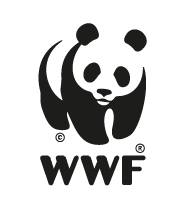Redeeming the past, Restoring the present, Reawakening the future.
© Kelvin So / WWF-Hong Kong
WWF and Coral Academy rescue Corals of Opportunity (CoP) by conducting underwater surveys and collecting coral fragments. These fragments are brought back to our facility where they are documented and nursed back to health. When they resumed their health, we return them to their natural habitat.
We aim to support and scale up the coral resilience and related research of Coral Academy to enhance the adaptation and survival rate of corals in response to climate change.
Coral nursery tanks at the Hoi Ha Marine Life Centre are on public display, allowing visitors to closely observe rescued coral fragments. In the near future, we plan to provide opportunities for people to participate in our work in such ways as assisting in our coral nursery tanks and helping out during coral surveys.
To effectively protect the ocean in the long run, WWF has been calling for 30 per cent of Hong Kong waters to be designated as marine protected areas (MPA) by 2030.
Our centre is located in Hoi Ha Wan, a marine park that is home to 64 hard coral species and at least 120 species of fish. The Hoi Ha Marine Life Centre was built above the sea, giving us easy access to study and monitor marine biodiversity. We also offer diverse public education programmes and eco-tours, giving the public in-person experiences that help them understand marine conservation.
© Vinícius Yeung / WWF-Hong Kong
Our centre is located in Hoi Ha Wan, a marine park that is home to 64 hard coral species and at least 120 species of fish. The Hoi Ha Marine Life Centre was built above the sea, giving us easy access to study and monitor marine biodiversity. We also offer diverse public education programmes and eco-tours, giving the public in-person experiences that help them understand marine conservation.
